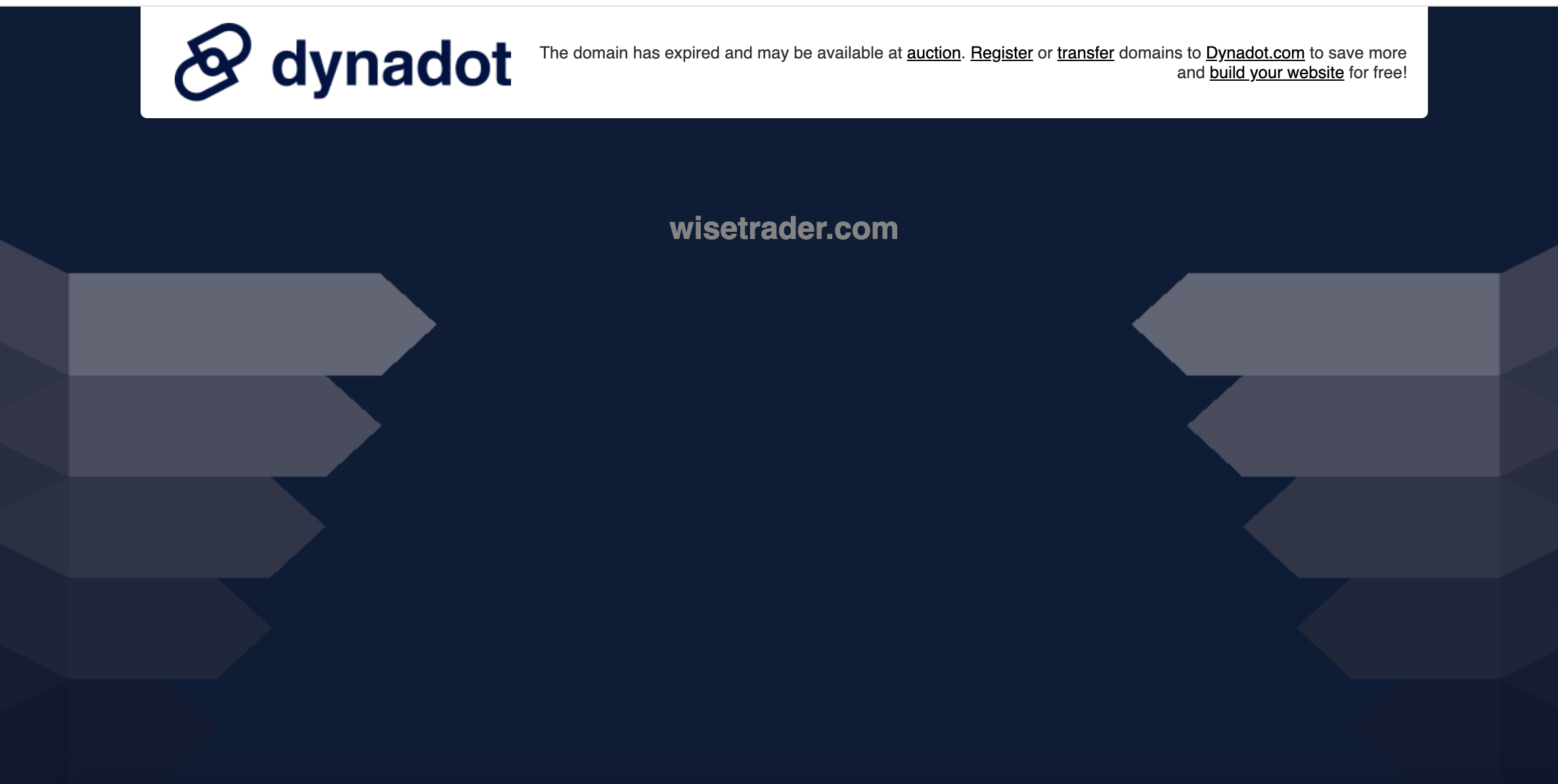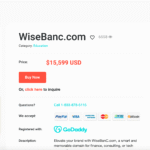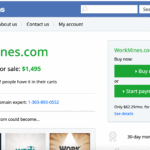Wisetrader.com Scam Review: Deep Dive
In the crowded world of online forex and CFD brokers, Wisetrader.com, branded simply as Wisetrader, has raised considerable suspicion. While the site claims to operate as a legitimate broker with regulated structure, trader complaints, opaque business practices, and troubling platform features suggest that working with Wisetrader may carry serious risks. This review explores the evidence, user reports, and structural red flags that lead many to classify Wisetrader.com as a potentially unsafe or scam broker.
The Broker’s Promise — What Wisetrader Presents to Users
Wisetrader markets itself as a comprehensive online brokerage, allowing traders to invest and speculate in currencies, indices, commodities, and other financial instruments. According to its publicly stated conditions, the broker offers substantial leverage (reportedly up to 1:200), a variety of trading instruments, and a high minimum initial deposit. The site does not provide a downloadable trading platform like MetaTrader; instead, it relies on a web-based interface.
At first glance, Wisetrader seems to present a reasonably professional image: it claims regulatory oversight, speaks to experienced traders, and touts a global reach. These promises, especially to newer traders attracted by leverage and variety, can be compelling — but beneath the surface, there are substantial concerns.
Red Flag #1: Regulation vs. Reality
One of the key issues raised by reviewers is Wisetrader’s regulatory claims. According to some sources, the broker is said to be associated with a company registered in Cyprus, F1Markets Ltd., with an alleged license number under the Cypriot regulator (CySEC). However, digging deeper, there are inconsistencies and serious doubts:
-
Some analyses suggest that while Wisetrader claims regulation, critical details such as how client funds are segregated (or even whether they truly are) are not transparently disclosed.
-
The small print — such as disclaimers or terms of service — is reported by users to be tiny, dimly formatted, and difficult to read. This could indicate an attempt to bury important risk information or obligations.
-
Even if CySEC regulation is claimed, reviews question whether the broker offers all the protections (or honestly provides all the required disclosures) that regulated brokers should.
These discrepancies make it difficult to validate Wisetrader’s regulatory legitimacy in a satisfactory way.
Red Flag #2: High Minimum Deposit & No Demo Account
Wisetrader reportedly requires a minimum deposit of $250 to open the basic “Mini” account. For some traders, that’s not prohibitive — but given the risk profile of an unproven or potentially deceptive broker, many would prefer to test the waters with a demo account first. According to multiple sources, Wisetrader does not offer a demo account, which is a major red flag:
-
A lack of demo means new or inexperienced traders have no way to practice on the platform before risking real capital.
-
This pushes traders to commit money from the start, increasing their exposure to potential losses if things go wrong.
-
Scam-style or high-risk brokers often avoid offering demos precisely because they don’t want users to test or verify how trades actually execute.
The absence of a demo account significantly raises the risk for users who are not already familiar with live trading.
Red Flag #3: Poor Trading Conditions
Once a client is “in” with Wisetrader, the trading environment reportedly comes with several disadvantages that undermine profitability:
-
The broker uses a web-based proprietary platform instead of popular and well-tested options like MetaTrader 4 or 5. Web platforms may lack advanced trading tools, sophisticated charting capabilities, or reliable execution — and in some cases, they can be manipulated more easily by unscrupulous brokers.
-
Spreads on major currency pairs are reportedly quite wide and fixed, such as 3 pips on EUR/USD in some account types. That rate is high compared to many established brokers, and it hurts traders’ ability to generate sustainable returns.
-
Leveraging of 1:200 may sound attractive, but combined with high spreads and a potentially weak platform, it amplifies risk rather than offering a genuine advantage for responsible trading.
These conditions suggest that users might be set up to trade in a cost structure that heavily favors the broker.
Red Flag #4: Withdrawal Complaints & User Grievances
One of the most consistent and worrying themes among Wisetrader critics involves withdrawal issues. According to reviews across user-oriented broker review sites, common problems include:
-
Traders claim they are unable to withdraw profits or their capital successfully.
-
Some say “winnings” vanish, or that accounts are frozen when withdrawal requests are made.
-
There are reports of lengthy delays and bureaucratic obstacles when asking for funds back, raising serious concerns about whether the broker intends to facilitate fair exits.
-
The discussion around “minimum withdrawal” may also be misleading or difficult to satisfy, based on how terms are framed.
For any broker, the ability for users to freely withdraw funds is crucial. When that becomes difficult or obstructed — especially when combined with aggressive deposit requirements — it strongly supports a narrative of risk or deception.
Red Flag #5: Questionable User Experience & Sales Practices
In addition to financial and operational red flags, Wisetrader’s reported sales and consumer-relations behavior raises ethical alarms:
-
The broker’s web design and content are clean, but reviewers note that its disclaimer text is very small and faint, making it hard for users to understand key terms.
-
Some users allege that account managers or sales representatives are very pushy, especially encouraging traders to deposit more as soon as they show initial interest.
-
The use of repeated outreach may be more about securing larger deposits than about supporting a healthy trading business.
This kind of emotionally aggressive or manipulative recruiting is not common among fully regulated, transparent brokers — and it matches the behavior pattern often associated with high-risk or fraudulent operations.
Red Flag #6: Weak Transparency on Corporate Matters
While Wisetrader claims to operate under a legitimate Cyprus-based company, critical information about its corporate structure, key executives, and leadership is not publicly and clearly documented. For a broker, being transparent about who runs the business, where it is based, and how it safeguards client money is vital; Wisetrader’s lack of clarity in these areas undermines confidence.
When corporate ownership is opaque, accountability becomes murky. In the event of disputes or financial problems, customers may have limited ability to pursue legal redress or escalate concerns meaningfully.
Pattern Alignment With Known Scam Models
Putting all the pieces together, Wisetrader’s reported behaviors align with several well-documented scam broker archetypes:
-
“Phantom” or high-risk broker: Operating with theoretical licensing but weak adherence to regulatory protections.
-
Aggressive deposit pressure: Encouraging large or early deposits without offering adequate risk education or testing options.
-
Exit friction: Making withdrawals difficult, delayed, or conditional on unclear terms.
-
Platform control: Using a proprietary web platform that may allow more manipulation than well-established third-party platforms.
-
Lack of clarity: Poor or hidden terms, unclear corporate identity, and low transparency about managing customer funds.
These patterns are commonly observed in operations that are either outright scams or highly questionable brokers with limited ethical standards.
Risk Profile: Who Should Be Especially Concerned
-
New or Inexperienced Traders: Without a demo account and with high deposit minimums, newer traders are especially vulnerable.
-
Traders Expecting Regulation: Anyone assuming full regulatory protection or robust account segregation may be mistaken.
-
Large Depositors: Even experienced traders should be cautious about depositing large amounts, given the withdrawal risk.
-
Traders Sensitive to Fees: The platform’s wide spreads and potential withdrawal obstacles make it more likely that unanticipated costs will erode gains.
Final Assessment: Is Wisetrader.com a Scam?
While there is some claim of regulatory oversight, Wisetrader.com exhibits many serious and recurring red flags:
-
High initial deposits required, without a demo account.
-
Proprietary web-based trading platform, not industry-standard.
-
Wide, fixed spreads that favor the broker.
-
Significant complaints about withdrawal difficulty.
-
Lack of corporate transparency and unclear ownership.
-
Possible manipulation of terms through hidden or hard-to-read fine print.
Taken together, these factors create a risk profile that is far too dangerous for many traders, especially those looking for a fair, regulated, and transparent broker. The structure and behavior seem more aligned with a high-risk or potentially fraudulent broker than with a fully trustworthy trading service.
Therefore, while Wisetrader may be technically “operational,” the volume, consistency, and severity of concerns make it a platform that many in the trading community believe should be avoided or approached with extreme caution.
-
Report Winsie and Recover Your Funds
If you have fallen victim to Winsie and lost money, it is crucial to take immediate action. We recommend Report the scam to BOREOAKLTD.COM , a reputable platform dedicated to assisting victims in recovering their stolen funds. The sooner you act, the greater your chances of reclaiming your money and holding these fraudsters accountable.
Scam brokers like Winsie persistently target unsuspecting investors. To safeguard yourself and others from financial fraud, stay informed, avoid unregulated platforms, and report scams to protect. Your vigilance can make a difference in the fight against financial deception.





